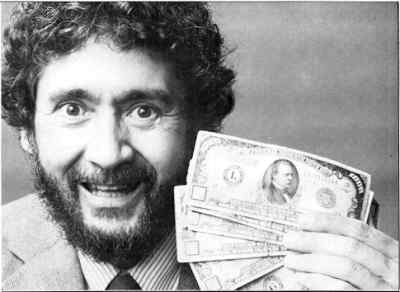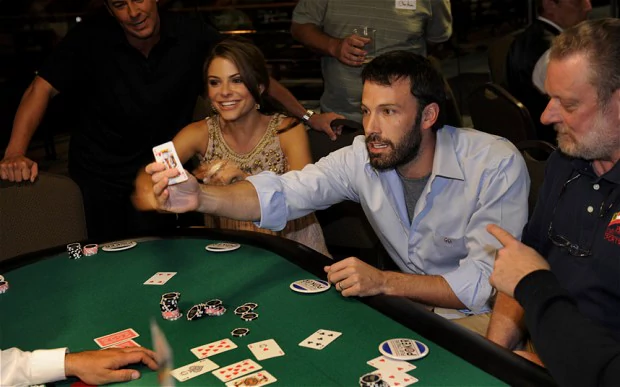Phil Ivey has many nicknames clinging to his status as “a great poker player”. Before he could legally place a bet, a made up identity that spelled Jerome Graham was inked on his fake ID card. He was not 21 yet, but would spend his sleepless nights in the Taj Mahal casino in Atlantic City, sleeping beneath the boardwalk when the game stretched too late for him to catch the bus back home. People would recognize the wandering avid poker player, calling him No Home Jerome.
In 2002, when he won three World Series of Poker Bracelets of the overall ten along the years, Phil Ivey received the more flattering title of The Phenom.
Nowadays, fans pay tribute to the player’s brilliant poker face and royal flush skills by calling him by his self-picked sobriquet: The Tiger Woods of Poker.
But, most recently, the name of Phil Ivey became synonymous to a gambling technique of ill-repute. Edge sorting carries overtones of cheating, some argue, and any gambler practicing this particular strategy deserves to be called a hustler. This is one label Phil Ivey does not endorse.
In an interview with 60 MINUTES SPORTS, Ivey said that “Once you get cheater next to your name, especially in my business, which is the business of gambling, is really bad.”
From a hobo gambler to a world champion, this professional player became steeped in controversy in most recent years, and his greatness at poker had become overshadowed by the lawsuits he had started to protect that very same reputation.
Edge Sorting: Cheating or Advantage Play?
In 2012, Phil Ivey sued Crockfords, the oldest British casino for high rollers on account that the establishment had refused to pay him his $14,3 million winning pot. Ivey sued and lost.
The judge decided that the professional gambler had cheated by taking advantage of an error on part of the casino. That error was a pack of cards that had been improperly cut, and Ivey’s cheating was that he had used the technique known as edge sorting in Punto Banco, or baccarat, to beat the dealer.
How does edge sorting work?
The first rule for the technique to be implemented is that the cards have a flaw in design. One way to notice that is to have a couple of improperly cut cards. If you turn one to 180 degrees from the other, you’ll notice the two are not the same.
The movie Kaleidoscope, a 1966 flick starring Warren Beatty, will enlighten you more on how cards with a “birthmark” can lead to a easy win if the right gambler spots the flaws.
That assymetry between the cards will help you read the next hand, but it’s not enough. It also helps if you’re a high roller with unusual demands.
High rollers can make or break casinos. Their financial input rises to millions of dollars, and so does the miles a casino is willing to go to in order to secure a high roller at their tables.
In a Washington Post article, Eliot Jacobson, a former computer science professor at University of California, described high rollers as “a precious commodity in the casino industry, and so they are ceded any number of special requests to get their business. It’s competition for scarce resources.”
Don Johnson, a professional blackjack player, raked in millions by acting as a whale gambler and obtaining a number of perks. So did Phil Ivey and his associate, Cheung Yin Sun, come with a couple of demands. And Crockfords fell for it.
There were a few minor, but crucial changes the casino made to the rules to accommodate Ivey and Sun requests.
- The most important baccarat cards were turned to 180 degrees. The casino agreed since Sun, a native Chinese, had made it especially clear that she was a superstitious gambler and considered the shift a good luck charm.
- Ivey further improved on their advantage by asking for an automatic shuffler to be used. That way he made sure the cards won’t be flipped around manually.
- Finally, the dealer they requested had to be Chinese so Sun can address her in Mandarine only, a language the pit bosses and security wouldn’t understand.
This wasn’t the first or last time either Ivey or Sun, doubling down on their high roller status, used edge sorting to secure the casino jackpot. In a mirror case, Ivey had won $9,63 million from Atlantic City’s Borgata. The venue had already transferred the money to Ivey’s account before getting wiser to the tricks he had played on them.
Borgata finally sued Ivey for breaking casino etiquette - aka cheating- and demanded their money back.
At the age of 38, Phil Ivey has not only beaten the casinos at their own game but had been the fastest and youngest to secure ten World Series of Poker bracelets and a net worth of $100 million. Not bad for someone who financed his first Hold’em bankroll raising money for New Jersey’s Fraternal Order of Police.



















